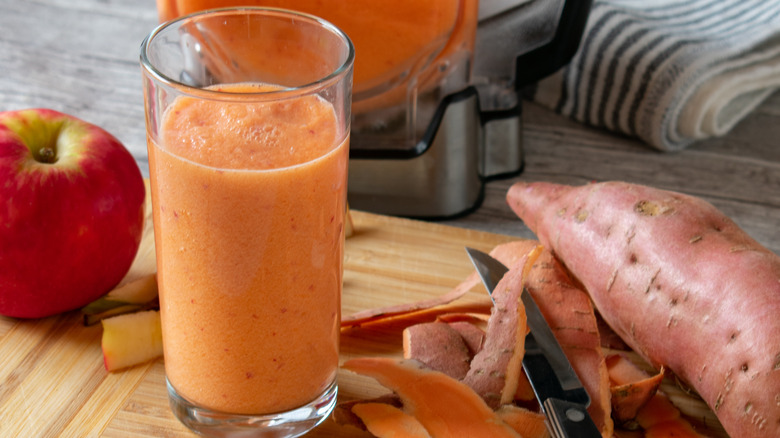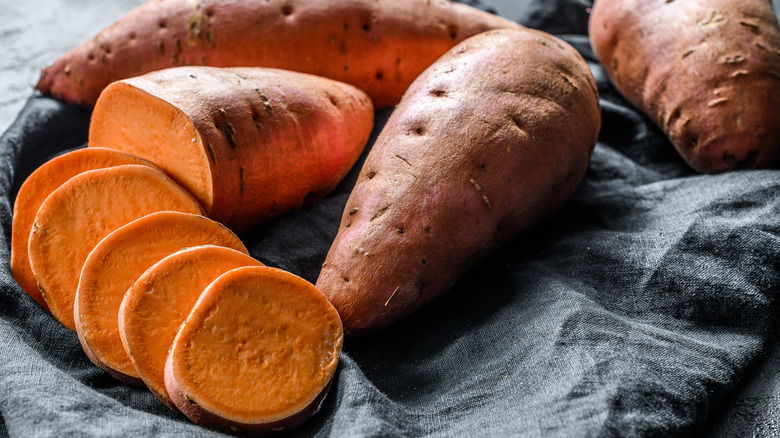Why You Need To Start Juicing Sweet Potatoes
Apples and oranges aren't the only ingredients made for juicing. Nearly any fruit or vegetable can be liquified, so why not sweet potatoes? We'll admit that juicing the orange-fleshed tubers may not be super common, but that doesn't mean you shouldn't give it a try. In fact, there are more than a few reasons why juicing sweet potatoes should become standard practice.
Unlike regular potatoes, sweet potatoes aren't part of the nightshade family, which means they don't produce toxic solanine and are suitable for raw consumption. And while eating one that's been baked is one way to get it inside you, drinking its juices allows the body to absorb the nutrients more efficiently. Since sweet potatoes have a bevy of health benefits — like improving immunity, vision, and regulating blood sugar levels, according to Healthline — juicing the root vegetable is a no-brainer.
However, the most impressive aspect of juicing sweet potatoes lies in what they offer in terms of flavor and texture. Sweet potato juice has an incredibly complex profile. Similar to carrot juice, the liquid tastes mildly sweet with earthy nuances and notes of nuttiness. Moreover, it also has a velvety texture thanks to the potato's extreme starchiness. This means that sweet potato juice can impart an element of creamy decadence when added to other dishes. Plus, let's not ignore the fact that the juice also has a stunning auburn hue that can liven up any blend or some boring, beige sauce or soup.
How to make (and use) sweet potato juice
Before you start juicing, make sure to clean the sweet potatoes thoroughly. We also recommend peeling them to ensure a totally crud-free spud. At this point, you can roughly chop the tubers before adding the chunks into the juicer of your choice. Note that both centrifugal or masticating models will do. Within a few minutes, you'll have fresh juice that's ready to enjoy.
If a glass of pure sweet potato juice isn't quite to your liking, it can make for a wonderful addition to juices, smoothies, or popsicles made with vibrantly sweet citrus or stone fruit. Otherwise, the juice can also be used to cook with. For example, a splash can upgrade flavor and create a richer mouthfeel when whisked into zesty chowders, creamy sauces, or crisp salad dressings. You can even use a cup of sweet potato juice as a flavorful cooking liquid to steam vegetables, cook pasta, or even poach fish.
Although freshly made sweet potato juice will last in the fridge for no more than a few days, you can extend its shelf life by freezing the liquid for later. Simply pour the peach-colored juice into an ice cube tray for an instant burst of flavor and texture whenever you want. With so many benefits and unique uses, we think you'll agree that juicing sweet potatoes makes a lot of sense.

